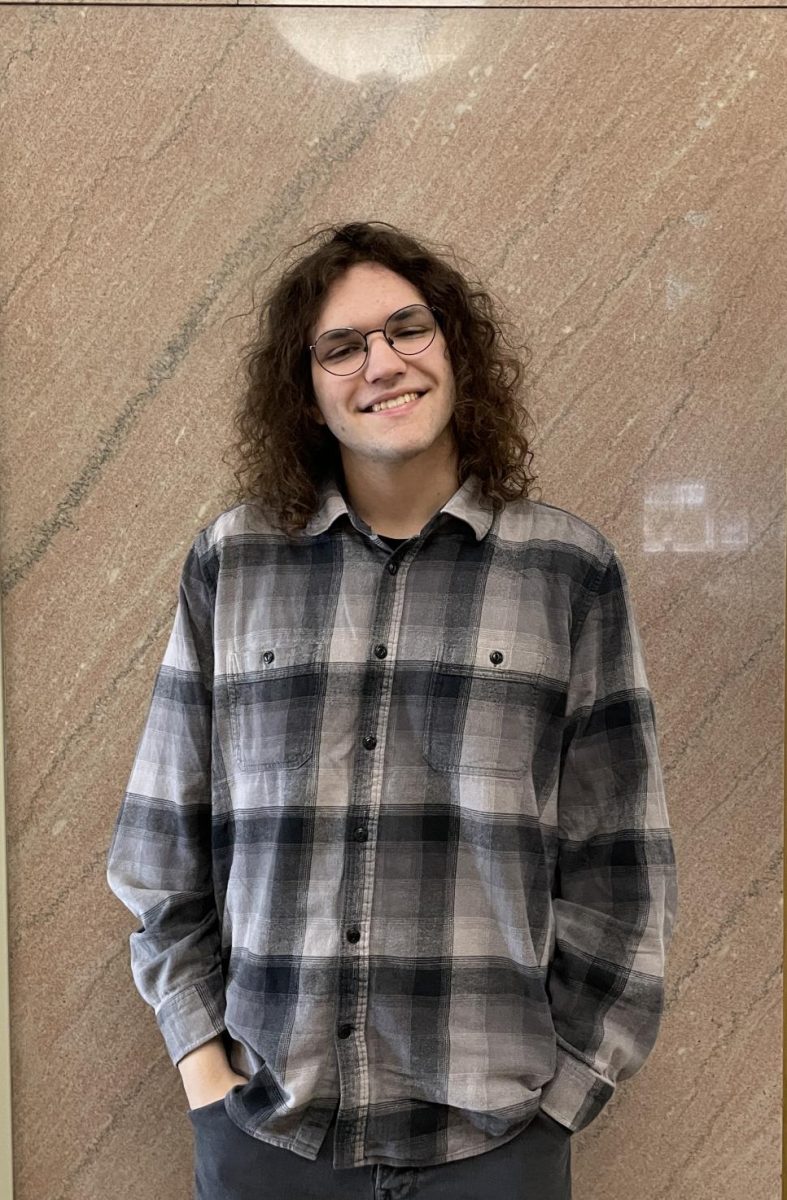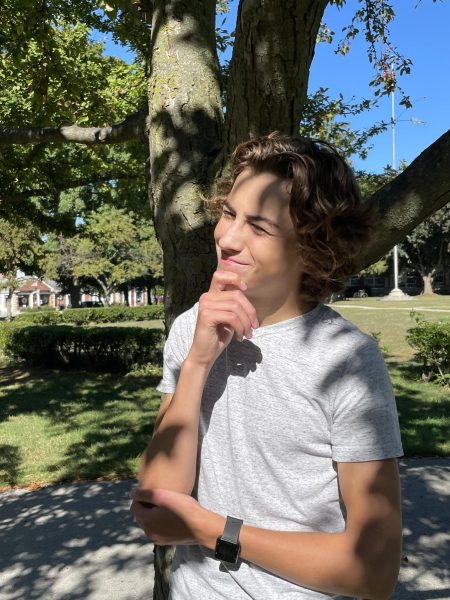Bach. Mozart. Haydn. Handel. Dag. Well, not yet, but perhaps someday the local music-theory-whiz-turned-composer will be remembered as one of the greats of classical music. For now, Dagueneau Jewell ’24, called “Dag” by the many people around South who know and love him, has taken it upon himself to compose a piece of music to be performed by the orchestra. Despite his extensive prowess and seemingly innate mastery over music theory, Dag Jewell only recently began experimenting with composition, a process that he said has allowed him to express himself in a manner which no other art form ever has.
“I’ve tried to write and I’ve tried to paint paintings and draw and doodle and engage with architecture and all these wonderful things, and while they’ve all been fun, none of them ever really felt right for my way of expressing myself,” Jewell said. “I think with music, especially the idea of composing it as opposed to just performing it, I’ve found a way of expressing myself that really fits with how I interact with the world.”
Although an enriching experience for Jewell, the process of composing isn’t always an easy one. In fact, Jewell said she runs into many of the same issues that artists of all kinds face, from unsatisfactory material needing to be rewritten to the timeless problem of writer’s block.
“Sometimes, you try to sit down and write and nothing flows,” Jewell said. “Most artists can appreciate the idea of writer’s block, but I think I think I’m managing to find my process, especially because, as a very young artist, it’s hard to know what works for you and what doesn’t, but I’m pretty close to the end of actually finishing the piece.”
Jewell’s brother, Viggo Jewell ’25, said he has watched and supported his brother throughout his progression as a composer. While the rest of the world will probably only ever see the finished product, Viggo Jewell said there’s a lot more that occurs behind the scenes.
“(There is) a lot of frustration; I feel like it’s often overlooked how many trials and how many compositions get thrown out and tossed out the window and never touched again,” Viggo Jewell said. “Sometimes stuff just doesn’t stick and sometimes you just don’t know where else to go with it.”
When it comes to style, Viggo Jewell said his brother is unique. Instead of opting for the typical slow and downhearted tone that is typically associated with classical music, Viggo Jewell said Dag Jewell opts for a more jovial approach.
“I feel like (Dag Jewell) is very upbeat and very artistic,” Viggo Jewell said. “I feel like he generally is in a happy mood and I feel like with composing especially modern, classical or symphonic repertoire, a lot of pieces can just be slow (and) sad, but it’s important to have happy music and music that’s kind of jovial and just more upbeat.”
According to band director Chris Takis, it was Dag Jewell’s curiosity which allowed him to move forward with music theory and branch out into composition.
“Most students want to be either in band or in orchestra and choir, and the performing is what they really love to do,” Takis said. “But when you get beyond the performing, in Dag Jewell’s case, you want to be someone who’s behind the scenes putting that music together. You just have to have the curiosity and the real interest and drive to do it.”
While curiosity, persistence and a natural propensity for music theory are all prerequisites for the amateur composer, Dag Jewell said there’s one habit which takes precedence over all the rest.
“I think, for any art form, the best way of becoming a good artist of any type is to consume it,” Jewell said. “If you want to write good classical music, you have to listen to lots of classical music, and (it is) the same way if you want to become a good poet or a good writer of stories, a good novelist or a good journalist. The primary way you should go about improving yourself is to analyze and listen to and actively think about the medium you’re trying to write for.”












































































